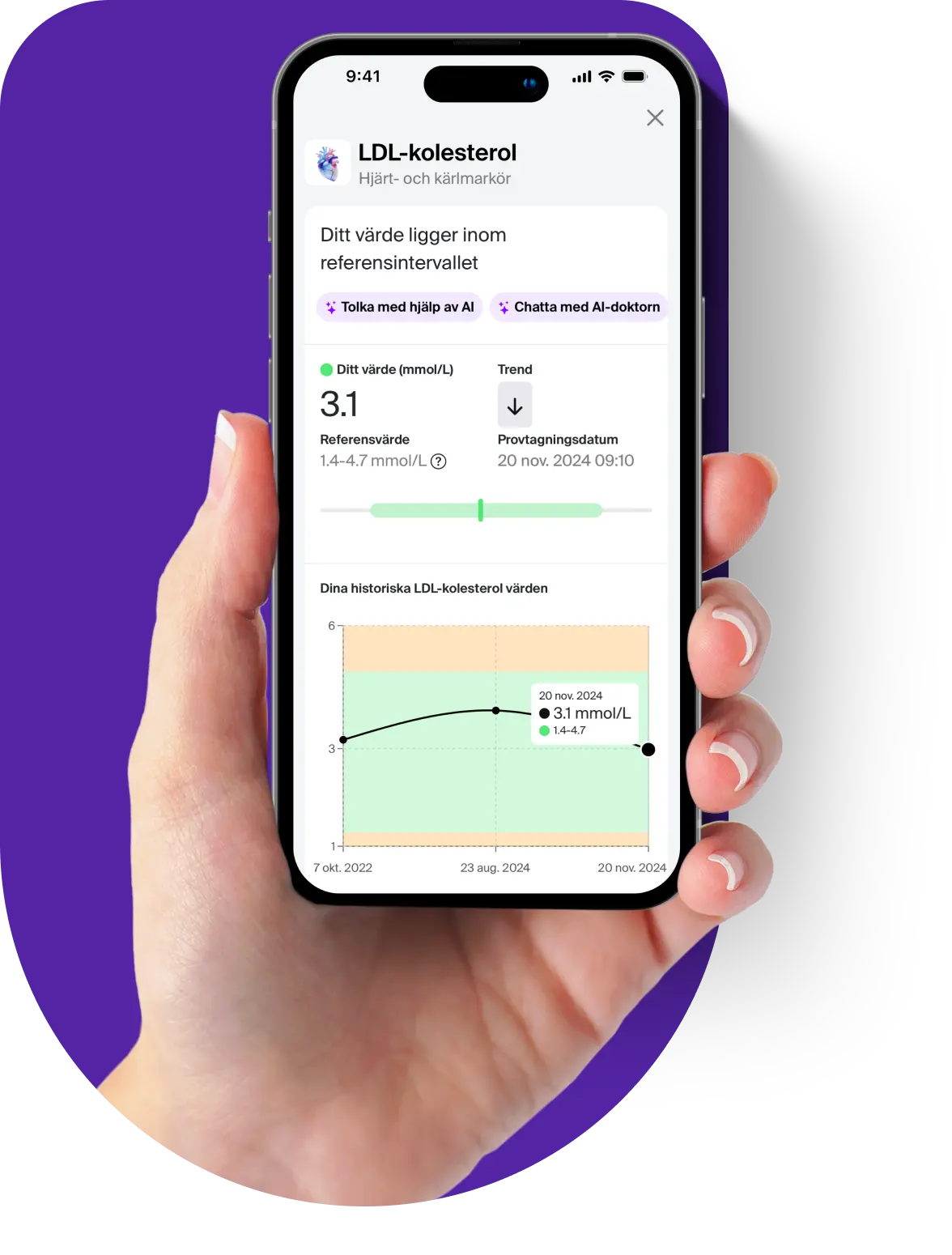Health test for the biomarker progesterone, which is a female sex hormone that occurs naturally in the body and has an impact on your fertility and ovulation. The test gives you more insight into your fertility and can help you identify the optimal time for conception.
The progesterone test is mainly carried out to identify whether ovulation has occurred and gives you a picture of what your progesterone production looks like. Progesterone levels rise after ovulation and remain high for the second half of the menstrual cycle. By measuring the progesterone level in the blood, one can thereby determine if ovulation has occurred and when it has occurred.
Progesterone can also be analyzed to investigate possible hormonal disorders such as polycystic ovary syndrome (PCOS), endometriosis or infertility. By measuring progesterone together with other hormones such as estradiol (Estrogen).
Progesterone is also called the corpus luteum hormone because it is produced by the corpus luteum in the ovaries shortly after ovulation. Progesterone's primary function is to prepare the lining of the uterus for a possible pregnancy by making it thicker and more receptive to a fertilized egg. If fertilization does not occur, progesterone levels fall, causing the lining of the uterus to be shed and menstruation to begin.
Progesterone levels naturally fluctuate during the menstrual cycle. In the follicular phase, which is the period from the start of menstruation until ovulation, progesterone levels are low. After ovulation, the cycle enters the luteal phase, when the corpus luteum begins to produce more progesterone, causing levels to rise. High progesterone levels in the luteal phase are a sign that ovulation has occurred and that the body is ready for a possible pregnancy.
During pregnancy, progesterone production continues, first by the corpus luteum and later by the placenta, to support the lining of the uterus and prevent menstruation. If progesterone levels are too low during early pregnancy, it can increase the risk of miscarriage. Therefore, progesterone tests are also used in fertility studies and in the evaluation of hormonal imbalances.
Testing progesterone levels can provide important information about your cycle and fertility, especially if you are trying to get pregnant or have irregular periods. The analysis may also be relevant in cases of suspected luteal phase defect, where progesterone production is insufficient, which can affect the chance of getting pregnant.







































